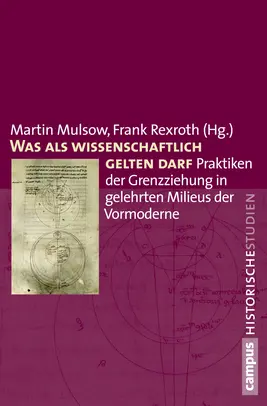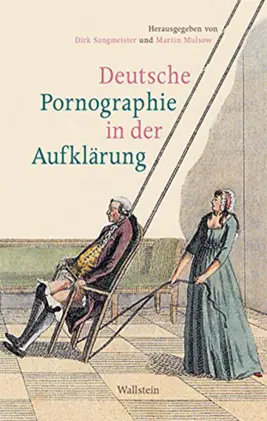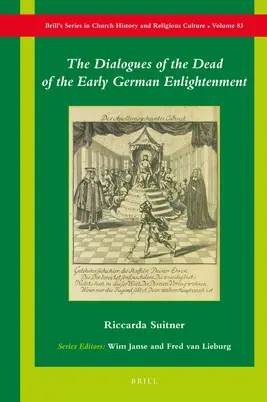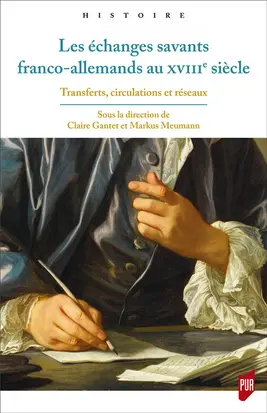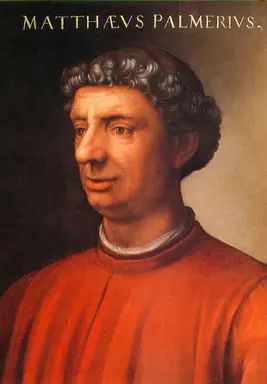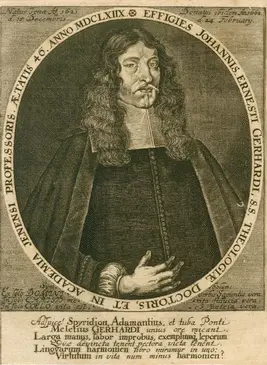The study of practices of scholarship and their significance for the scholarly production of knowledge in the early modern period has long been one of the research foci of the Gotha Research Centre and its director Martin Mulsow. Since 2013, among other things, projects and conferences have been conducted on the important Orientalists Johann Ernst Gerhard (1621–1668) and Hiob Ludolf (1624–1704) as well as on the knowledge production of the Enlightenment, each leading to a number of publications (see below).
Of central importance for this field of research is the study of early modern (scholarly) letter networks. Handwritten scholarly correspondence is one of the most important treasures of the libraries. At the Gotha Research Centre, several books and research projects on correspondence have already been completed, among others on the botanist Johann Friedrich Blumenbach (1752–1840), the Gotha duchess Luise Dorothea (1710–1767) with her lady-in-waiting Friedrike von Montmartin (1729–1752), the Baltic writer Garlieb Merkel (1769–1850), the theosophist Friedrich Breckling (1629–1711) and the radical pietist networks of the so-called Philadelphians. Currently, preliminary work is underway on an edition of the correspondence of Heinrich Cornelius Agrippa von Nettesheim (1486–1535) and on the complete edition of the writings of Jacob Böhme (1575–1624). In the future, the correspondence of Wilhelm Ernst Tentzel (1659–1707) and the correspondence between Duchess Luise Dorothea and Ernst Christoph von Manteuffel (1676–1749) will be made accessible through digital editions in cooperation with the Gotha Research Library and the Thuringian State Archives – Gotha State Archives.
One of the most eminent fields of philosophical and legal knowledge production from the 17th to the early 19th century was early modern natural law. Since 2019, the Gotha Research Centre has maintained a research unit in cooperation with the Max Weber Centre and the network “International Law 1625–1850. An International Research Project” for studying this topic. As part of this cooperation, several individual projects and studies are currently being conducted or prepared, among others on natural law at universities in the Baltic region, on natural law in the work of Heinrich and Samuel Cocceji as well as in Samuel Pufendorf’s work, and on Christian natural law in Johann Christian von Boineburg’s work (1622–1672), as well as a subproject within the CRC “Structural Change of Property”, which explores the relations between property and customs in natural law.
Among the most prestigious fields of scholarly knowledge production in the early modern period were arcane ‘sciences’ such as alchemy. At the end of the 17th century, alchemy was intensively practised at the Gotha court in order to be able to produce gold; in parallel, the princes collected manuscripts and books on the subject. An interdisciplinary working group of historians and chemists has been studying the process guidelines (partly experimentally) for several years with the support of the Gerda Henkel Foundation. An anthology on alchemy in Gotha is in preparation. Finally, the focus "Arcane Knowledge" addresses research on the Illuminati and Freemasons, which is described in more detail in the research field "Court – Socialisation – Enlightenment".
A relatively new focus, with which Martin Mulsow returns to his dissertation topic, deals with Renaissance philosophy and late humanist scholarship. In addition to a project working on an extended edition of Matteo Palmieri's Della Vita Civile, several German-Italian summer schools on the Renaissance should be mentioned here, which will take place every two years in Loveno di Menaggio starting in 2024 in cooperation with Villa Vigoni, the German-Italian Centre for European Dialogue. The programme of Deep Intellectual History is also new. Until now, historiography has been largely limited to written sources; the horizon usually reaches back only to ancient Greece. “Deep History”, on the other hand, asks about continuities with so-called prehistory.
Ongoing Projects
- Studies on Military Cultures of Knowledge in Central Germany in the 17th and 18th Centuries. The Example of the Duchy of Saxony-Gotha-Altenburg (Michael Schwarz)
- Lessing's beginnings in the philosophy of religion (Magdalena Fricke)
Completed Dissertations
- Antiquarian knowledge in the making : a constellation around Leibniz in the early 18th century. Erfurt 2020. (Dr. Robert Heindl)
- Lessing's Rescues. History and genesis of a style of thinking. Berlin/Boston 2013. (Dr. Michael Multhammer).
- The philosophical conversations with the dead of the early Enlightenment. Hamburg 2016. (Dr. Riccarda Suitner).
- 8th Working Meeting of the Network Alchemy on June 26, 2022.
- Conference "GermanPornography in the Enlightenment" from 21 to 23 October 2015.
- Conference"Essays as Media of Character Formation and Human Guidance in the 18th Century" on June 25-27, 2015.
Editions
- Nobert Klatt, Frank William Peter Dougherty (eds.): The Correspondence of Johann Friedrich Blumenbach. Revised, augmented and edited by Norbert Klatt. Vol. 1: 1773-1782. letters 1-230. vol. 2 1783-1785. letters 231-391. vol. 3 1786-1790. letters 392-644. vol. 4: 1791-1795. letters 645-965. vol. 5: 1796-1800. letters 966-1359. Göttingen 2006/2007/2010/2012/2013.
- Bärbel Raschke: The correspondence between Luise Dorothea of Saxe-Gotha-Altenburg and Friederike von Montmartin 1751-1752. Translated, introduced and commented by Bärbel Raschke. Volume 3 - Friedenstein sources no. 3. Gotha 2009.
- Dirk Sangmeister, Thomas Taterka, Jörg Drews (†) (eds.): Garlieb Merkel: Briefwechsel. Volume I: Texts. Bremen 2019.
Collected volumes
- Martin Mulsow, Frank Rexroth (eds.): What May Be Considered Scientific. Practices of demarcation in scholarly milieus of the pre-modern era. Frankfurt a. M. 2014.
- Markus Meumann, Olaf Simons (eds.): Essay Practices in the 18th Century. Enlightenment. Interdisciplinary Yearbook for the Study of the 18th Century and its History of Impact. Vol. 28. Hamburg 2017.
- Martin Mulsow, Kasper Eskildsen, Helmut Zedelmaier (eds.): Christoph August Heumann (1681-1764). Scholarly practice between Christian humanism and enlightenment. Stuttgart 2017.
- Markus Meumann, Renko Geffarth, Holger Zaunstöck (eds.): Kampf um die Aufklärung? Institutional Competition and Intellectual Diversity in 18th Century Halle. Halle 2018.
- Claire Gantet, Markus Meumann (eds.): Les échanges savants franco-allemands au XVIIIe siècle. Transferts, circulations, réseaux. Rennes 2019.
- Martin Mulsow, Asaph Ben-Tov (eds.): Knowledge and Profanation. Transgressing the Boundaries of Religion in Premodern Scholarship. Leiden 2019.
- Martin Mulsow (ed.): The Hair as Argument. On the history of knowledge of beards, hairstyles, and wigs. Stuttgart 2022.
Monographs
- Martin Mulsow: Radical Early Enlightenment in Germany 1680-1720. volume 1: Modernity from the Underground. Updated new edition. Vol. 2: Clandestine Reason. Göttingen 2018.
- Asaph Ben-Tov: Johann Ernst Gerhard (1621-1668). The Life and Work of a Seventeenth-Century Orientalist. Leiden 2021.
- Martin Mulsow: Overreach. Perspectives on a Global History of Ideas. Berlin 2022.

